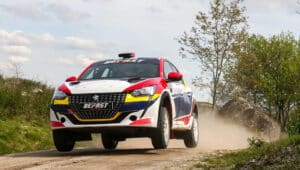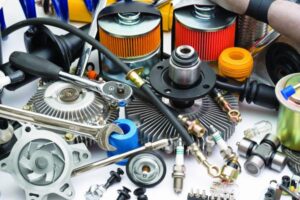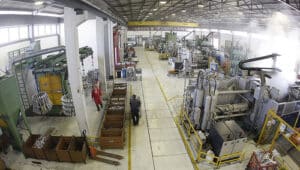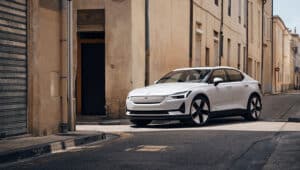By Guilherme Marques
The most interesting engine in the Focus line up is the 2.0 Ecoboost that powers the ST version. But this three-cylinder 1.0 is definitely the most important.
The Ford Focus is a well-established player in the family hatchback market. Since the first model came out in 1998, it gained a reputation for excellent driving dynamics and a sense of good, honest engineering.
The last generation has been here since 2010 but now there is big news in the form of a new, tiny three-cylinder engine, that is also an indicator of things to come, not just for Ford, but for the whole industry.
While in America and China petrol is still very much king, diesel engines have dominated the European market for over a decade now and only superminis, like the Fiesta in Ford’s case, are bought with petrol engines. Not by choice though, but because they are cheaper.
A diesel engine averages much better fuel figures than the equivalent petrol and offers an effortless driving experience, due to the torque its turbocharger produces.
The thing is, car makers are once again betting on petrol and with a clear recipe that just might work: downsizing engine capacity, improving turbo technology and adding tricks like start-stop and eco-driving modes.
So, let’s talk about this week’s contender in this new category, the one with engines so small the engine bay could double as a luggage compartment. I spent a weekend with a Focus Station Wagon 1.0 Ecoboost.
This three-cylinder engine produces an astonishing 125 horsepower and is so smooth – and I mean really really smooth – that my wife asked me twice if the car was working while we waited for the traffic light to turn green.
Strangely, this turbocharged gem of an engine drove like a diesel, making for easy, stress-free journeys, both inside the city limits and on the highway.
Except it didn’t have any of the usual diesel drawbacks, such as that annoying rattle and the vibrations through the steering wheel, gear knob and pedals.
I know what you are thinking: this is all very nice, yes, a petrol car is better to drive than a diesel and all of that, but what about consumption figures? Well, around town I averaged 7 litres, which is fantastic; on the highway, if I kept it below 140km/h, I got 6 litres.
Driving it hard and exploring the Ford’s excellent dynamics (they are still there in this new model), the BC showed 8.5 litres. That is always roughly one litre more than the 1.6 TDCI diesel with 115 horsepower. Say it with me: wow!
The choice is yours, but this truly is a very good power plant and it will soon find its way into the revised Fiesta and the new Mondeo. BMW has already announced a similar 1.5 litre 3-pot engine for the Mini, the 1-Series and probably the prestigious 3-Series.
So, downsizing and turbocharging is the future of petrol engines and there is nothing wrong about that. I just hope they are all as good as Ford’s Ecoboost.
I got so carried away with this engine, I almost forgot: the Focus Station Wagon is a great family carrier, comfortable, practical and with loads of space for the kids, the bags and the dog. I am not a fan of the looks, but that is always subjective.
Objectively, I can say it is an excellent option, one of the best in its segment and even the price is right: €19,750.


















